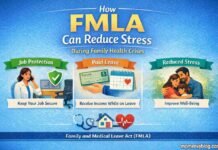The other day, I was attending a PTA meeting when one of the parents comes up to me to talk about one of my daughters. She noticed my daughter had a huge scab on her knee, so I told her about the accident she had weeks prior when she tripped while playing with her friends. Being the older parent, she then proceeded to lecture me about letting my daughter play outside, implying that I was neglecting her and didn’t care about the scraped knees she would develop.
As much as I respect the opinion of other parents, that just isn’t the type of parent I want to be. Having grown up with helicopter parents, I’ve seen and experienced just how a coddled and restrictive childhood can negatively affect a child as they grow into teenagers and later on adults. And I’ve found that when it comes to my kids, I have more to fear than the scrapes on their knees.
Helicopter Parents vs. Free-range Parents
In my years as a parent, I’ve found that there’s a wide spectrum of parenting styles, but the two ends of that are arguably the helicopter parents and free-range parents. Helicopter parents are those that micromanage every detail in their child’s life. I wouldn’t say that all of them are trying to live their lives through their children, but most of them believe that making every decision for their child and instructing them on their every move will help their children become more successful.
On the other end of the spectrum, free-range parents are the complete opposite. They don’t neglect their children, but instead provide them with their basic needs and then leave them to figure out everything– from simple things such as how to play with Legos, to more important matters such as walking to school once they’re legally old enough to walk in public unsupervised.
Both extreme styles of parenting have their drawbacks. Because they grew up being told what to do or how to react, children who have experienced helicopter parenting were emotionally and behaviorally stunted and had a difficult time thinking for themselves.
According to findings by the American Psychological Association, they were less equipped to deal with a complex social environment. On the other hand, free-range parenting is often seen with well-off parents, who provide their children with the basic necessities and all the material items they want, but none of the emotional support. As a result, children who experience this type of parenting become spoiled, entitled, and incapable of handling the pressures of the real world since they were never forced to experience it as children and always had their parents bail them out.
We Should Stop Coddling Our Kids
As a parent, you might want to be somewhere in the middle of that spectrum. Be there for your kids, provide them with the necessities, but develop a healthy balance between managing your kids and letting them be free to have their own experiences. It’s time to stop coddling them and trying to protect them from harm.
If they refuse to study despite your encouragement, let them experience getting a bad grade on their test. If they forget to bring their homework, let your kids experience the embarrassment of their teacher reprimanding them. But let them know that, at the end of the day, you will be there to continue guiding them. Otherwise, you’re contributing to the supposed “weakening” of their generation.
According to the Pew Research Center, more parents are coddling their children, and it’s contributing to more children growing into adults mentally unprepared to live without them. In a national survey, 60 percent of over 1,500 college students felt unprepared to live away from their parents, and those who were extremely unprepared turned to harmful vices to cope with their emotional and mental turmoil. It doesn’t help that some parents continue to coddle their children even as they grow older.
Let Your Kid Experience Their Own Mistakes
As a parent, I’ll admit, it’s much easier said than done. I want what is best for my children, and there are times when I want to keep them from doing things that I personally know from experience will lead to pain, sadness, and disappointment. But if I want them to learn and grow from their negative experience, I need to let them experience it instead of preventing them and telling them what to expect.
So, when my daughter plays with her friends, gets a bit careless, and ends up scraping her knee, there’s much more on my mind than scars she could have from her scabs. Because while she’s building a social life at an early age, learning how to deal with pain, learning her limits when she runs, the blood will dry, her wounds will be bandaged, and she’ll do the same thing eventually much smarter and stronger.
And at the end of the day, she’ll know I’ll be ready for her cries, bandage, alcohol wipes, and advice at the ready.















